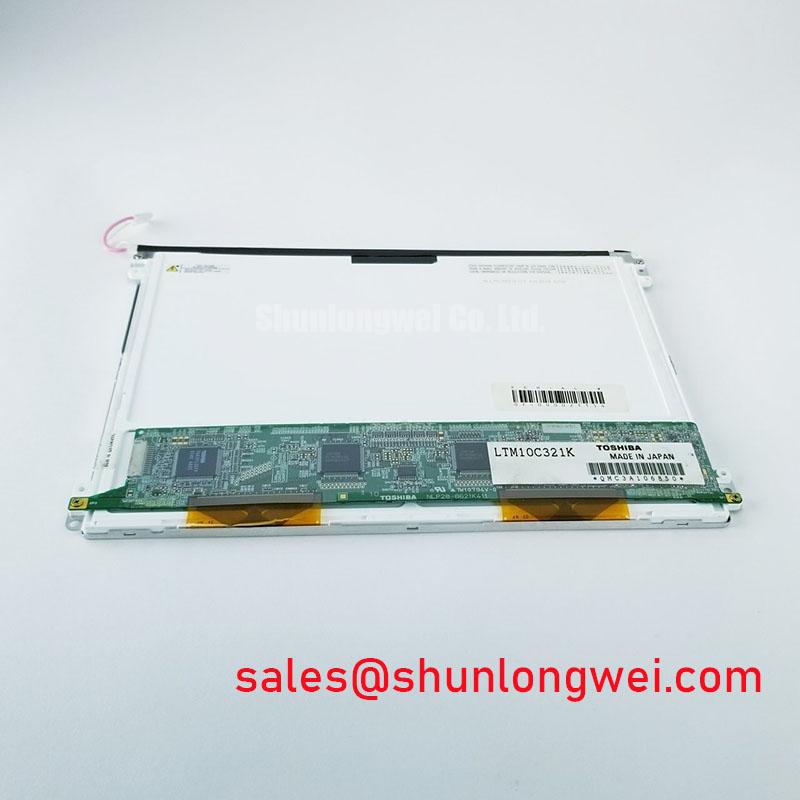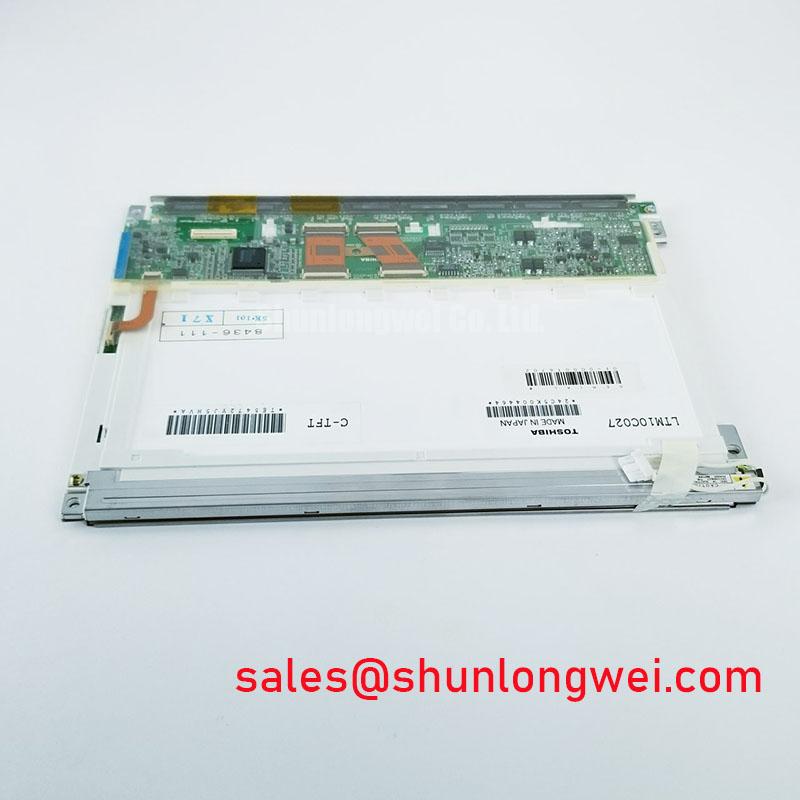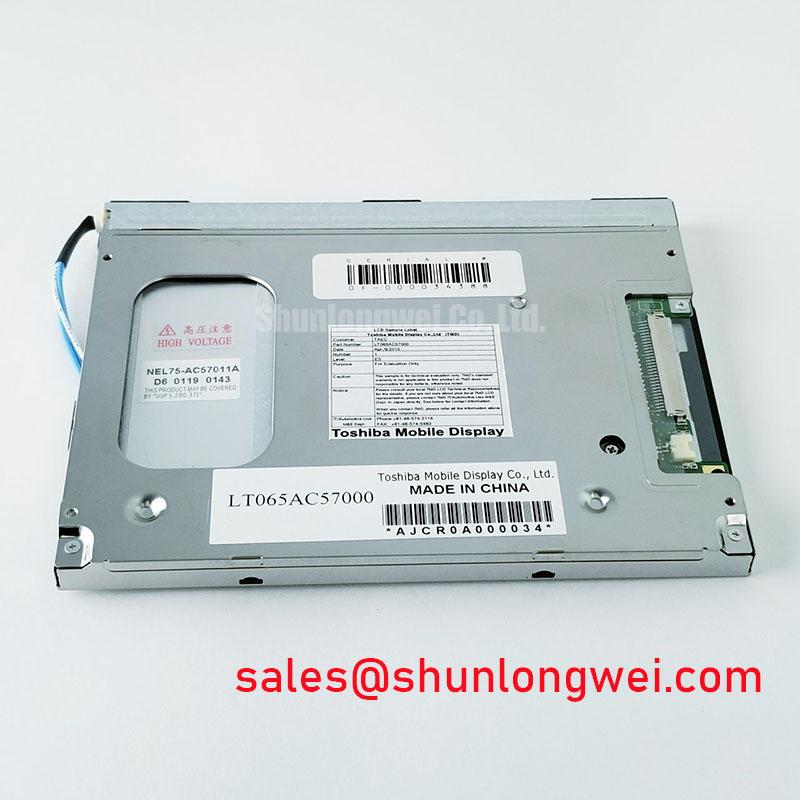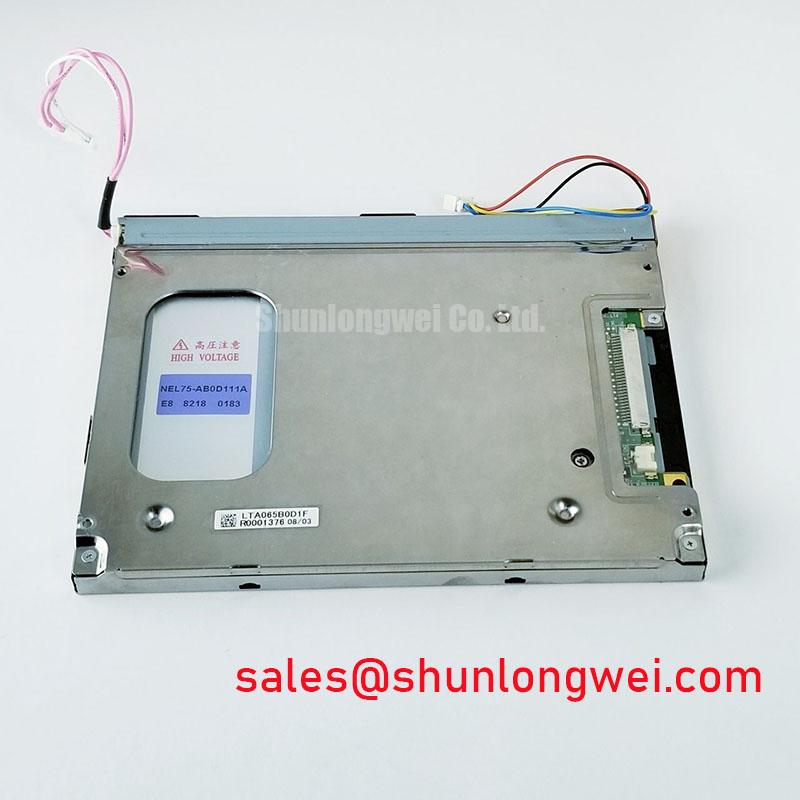Content last revised on November 21, 2025
LTM10C321K Datasheet & Specs: A 10.4" XGA LCD for Industrial Reliability
Key Parameter Overview
Decoding the Specifications for Thermal and Environmental Resilience
The Toshiba LTM10C321K is an industrial-grade 10.4-inch XGA display engineered for long-term operational reliability in thermally demanding environments. It delivers a balanced set of features optimized for industrial control, medical, and instrumentation applications where durability and consistent performance are paramount. What is the primary benefit of its wide operating temperature? Enhanced system reliability in environments without climate control. This panel is designed as a robust solution for both new systems and legacy equipment retrofits, providing a stable visual interface under challenging conditions. For legacy industrial HMIs requiring a thermally robust 10.4-inch XGA display, the LTM10C321K is a field-proven solution.
| Core Operational Specifications | |
|---|---|
| Manufacturer | Toshiba |
| Model | LTM10C321K |
| Diagonal Size | 10.4 inches |
| Resolution | 1024(RGB)×768, XGA |
| Panel Technology | a-Si TFT-LCD |
| Luminance | 400 cd/m² (Typ.) |
| Contrast Ratio | 500:1 (Typ.) |
| Viewing Angle | 140° / 110° (H/V) |
| Signal Interface | LVDS (1 ch, 6-bit) |
| Backlight | 2 pcs CCFL with Inverter |
| Surface Treatment | Anti-glare |
| Operating Temperature | -10°C to 70°C |
| Storage Temperature | -20°C to 80°C |
Application Scenarios & Value
System-Level Benefits in Industrial Automation and Control Systems
The LTM10C321K is engineered for environments where standard consumer-grade displays falter. Its primary value lies in its ability to maintain stable optical performance across a wide thermal spectrum, making it an ideal choice for applications such as industrial Human-Machine Interfaces (HMIs), process control terminals, and medical diagnostic equipment. The key enabling feature is its -10°C to 70°C operating temperature range. Think of this range like the performance envelope of an all-weather tire versus a standard one; while a standard tire stiffens in the cold and softens in extreme heat, an all-weather tire is formulated to provide predictable grip across those extremes. Similarly, this display's industrial-grade design ensures it boots up reliably in cold factory startups and won't suffer from image degradation or blackouts when installed in sealed, high-temperature enclosures typical of a CNC (Computer Numerical Control) machine or a PLC control cabinet.
This thermal robustness directly translates to higher system uptime and a lower total cost of ownership. By eliminating the need for auxiliary heating or cooling components for the display, designers can simplify the mechanical build, reduce power consumption, and minimize potential points of failure. The standard XGA resolution and LVDS interface ensure seamless integration with a wide variety of industrial motherboards and single-board computers, making it a highly effective drop-in replacement for aging or discontinued panels in existing systems. For systems requiring a slightly larger viewing area with similar industrial specifications, the G121XCE-L01 offers a 12.1-inch XGA alternative.
Application Vignette
Retrofitting a Medical Diagnostic Cart for Enhanced Reliability
Consider a mobile medical imaging cart used in a hospital setting. These carts are often sealed for hygiene and powered by internal systems that generate significant heat. An original, older-generation display begins to show intermittent failures—flickering, color distortion, and slow response times—especially after prolonged use. These are classic symptoms of thermal stress. A full system replacement is prohibitively expensive and requires lengthy regulatory recertification.
The LTM10C321K presents a strategic solution for this legacy system retrofit. Its 10.4-inch XGA format is a common size for such equipment, allowing for a direct mechanical fit. More importantly, its 70°C maximum operating temperature provides a substantial thermal margin within the cart's enclosed environment, ensuring long-term stability where the previous display failed. The 500:1 contrast ratio delivers the necessary clarity for technicians to accurately interpret diagnostic images and data. A 500:1 contrast ratio is like the difference between reading a book with a dim desk lamp versus a bright, focused one; it ensures that the distinction between the darkest and lightest parts of an image is clear and defined, which is critical for identifying subtle anomalies in medical scans. This upgrade path not only resolves the immediate reliability issue but also extends the operational life of a valuable capital asset without the costs and complexities of a complete redesign.
Engineering FAQ
Technical Questions on the LTM10C321K's Integration and Performance
How does the LTM10C321K's -10°C to 70°C operating range directly impact system design?
This wide range provides significant design flexibility. For low-temperature environments, it eliminates the need for a display pre-heater, allowing for instant-on capability in cold-start conditions down to -10°C. In high-temperature applications, it allows the display to be used in passively cooled or tightly sealed enclosures without requiring a dedicated cooling fan, which reduces system noise, power draw, and maintenance requirements.
What is the significance of the CCFL backlight in the LTM10C321K for legacy applications?
The dual CCFL (Cold Cathode Fluorescent Lamp) backlight system, complete with its own inverter, was a standard for industrial displays of its era. For engineers performing a legacy system retrofit, this can be a key advantage as it often allows for direct use of the existing power and control infrastructure without modification. It provides a proven, stable light source that matches the performance characteristics of the panels it is intended to replace.
Is the LVDS interface on the LTM10C321K compatible with modern embedded systems?
Yes, the 1-channel, 6-bit LVDS interface is a widely adopted standard and remains compatible with many modern industrial single-board computers (SBCs) and controller boards. However, engineers should verify that their controller's LVDS output can be configured for a 6-bit data depth and matches the pinout specified in the LTM10C321K datasheet. Adapters are also available in the market for systems that may have different physical connectors.
For strategic integration into industrial control systems, the LTM10C321K offers a compelling blend of durability, compatibility, and proven performance. Its core strength lies in providing a reliable visual interface that withstands the thermal stresses inherent in demanding operational environments, thereby safeguarding system integrity and extending the lifecycle of the equipment it serves.















